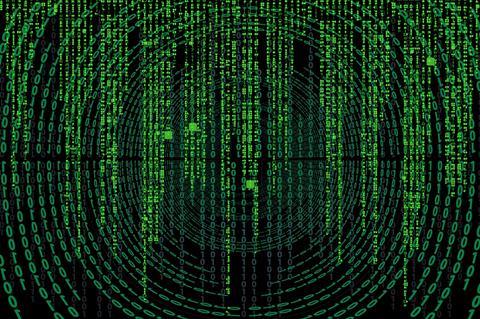IridescentBio is a new techbio start-up that’s bringing creative chemistry, physics know-how and methods to the Biopharma R&D world.

The team of four are building computational models in the cloud to provide forecasting superpowers for lab-based research and development of antibody therapeutics.
IridescentBio’s modelling framework is already capable of reconstructing hidden (often IP-locked) molecular data in biopharma patents, and predicting biophysical properties (developability) for brand-new antibody sequences; in the world of drug development, bringing a new product to market often takes around 10 years and costs on average, $2 billion USD.
These are just early stepping stones in their longer-term ambition of biopharma IP generation, patenting, and “biosimilar”/”biobetter” prediction.
Harnessing antibodies
Antibodies are proteins that play a critical role in the immune system, helping to fight off infections from viruses and bacteria. Much of the biopharma field involves engineering antibodies for specific targets that nature has not yet designed antibodies for.
Scientists able to work with them can harness their abilities to target and kill off bad cells, such as cancer cells, or cells with the wrong structure. The understanding of different engineering approaches to antibodies is critical to combatting many of the world’s new, and preexisting health risks.
A key challenge facing the field is the capacity to predict the developability of a particular antibody - which is what IridescentBio addresses.
Developability refers to the biophysical properties of an antibody, that could be how it behaves under different conditions, how stable it is, or how it interacts with other proteins/biostructures, as well as how readily it can be placed into a biologic-drug formulation. Predicting these properties can save time and money by allowing researchers to hone in on the most promising candidates.
Forefront of innovation
Nicholas Tito, co-founder of IridescentBio said, “IridescentBio stands at the forefront of innovation in the field of antibody modelling, employing an in-house proprietary framework built from ‘statistical thermodynamics’.
”This approach not only accelerates the modelling process by approximately 1000 times compared to conventional methods but also maintains a high level of accuracy.
”We can provide researchers a developability profile for an antibody within an hour, facilitating a swift yet informed decision-making process. Furthermore, our methods apply to both patented and novel antibody sequences, to help researchers meticulously evaluate and differentiate the potential of various sequences.
Drug candidate failures
“From 2009-2018, new drug candidates failed in the clinical trial phase 84.6% of the time. This means there’s a lot of space (and need) for scientific improvement in the discovery and R&D phases preceding that.
”Particularly in antibody development, the initial selection process involves sifting through approximately 1,000 candidates generated for a specific biotarget, a task that necessitates discerning the 1 to 3 candidates with the highest potential for success.”
Tito continues: “Our initiative is set to transform this landscape by introducing computational predictive modelling that substantially economises time and financial resources, facilitating a more streamlined and successful progression through the R&D pipeline.”
Revolution in antibody engineering
IridescentBio is inspired by the recent revolution in antibody engineering that opened up the potential for new (bio)molecular therapies in humans. The team, led by co-founders Johannes Fraaije and Nicholas Tito, includes Nick Benson as Sales Director, and Andre Nunes, the Chief Software Engineer based in Portugal. The company has partnered with AnkerCloud for back-end development and Studio Projectie in Leiden, Netherlands, for front-end development.
The biopharma industry employs not only antibodies, but other biomolecules as therapeutics, such as RNA and DNA drugs. It is both a vital and extensive field, with a market cap of around $300 billion and has seen significant growth in recent years, with a compound annual growth rate of 13%, as technology has advanced and the industry has learned how to upscale the technology for commercial use.
Over the last 15 years, there have been around 42,000 patents created to claim specific antibody sequences, making IridescentBio a valuable partner for researchers in biopharma, allowing them to form more informed decisions about which antibodies to pursue in the laboratory. The company is excited to contribute to the advancement of this rapidly growing field and help improve human health.
Topics
- IridescentBio
- Andre Nunes
- AnkerCloud
- antibody therapeutics
- Artificial Intelligence & Machine Learning
- developability
- Future Technologies
- Future Technologies
- Industrial Microbiology
- Industry News
- Infection Prevention & Control
- Johannes Fraaije
- Nicholas Tito
- Nick Benson
- One Health
- Pharmaceutical Microbiology
- Studio Projectie
- UK & Rest of Europe







No comments yet